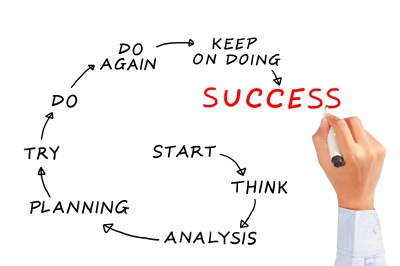
Success for Children with Learning Disabilities: Using Support Systems
November 26, 2013
Success for Children with Learning Disabilities: Learning to Stay the Course
December 5, 2013





The ability to be goal directed is a third factor that is highly predictive of success for students with learning disabilities. However, just like the development of self-awareness and the use of support systems (discussed in previous blogs), children with learning disabilities need explicit instruction in how to set goals.
As we start to think about goal-setting, we need to realize that many children do not have a solid understanding of what constitutes a goal, that being the achievement of something toward which effort has been directed. Talking about goals is an important first step. As parents or educators, we can share personal goals and the steps we took to attain them. We can also identify for a child times when we observed him engaged in goal directed behavior (even when no goal had been ‘officially’ stated) and how his actions led to a particular outcome.
Once the child understands the concept of a goal, we need to provide direct instruction in how to:
Over time, short-term goals can be combined toward completion of a larger goal. However, it is important to keep in mind that many children need repeated success with very short-term goals before the goals can begin to increase incrementally.
While we tend to think of goal-setting in the academic realm, there are many other arenas in which we set goals. Helping children to understand that goal-setting is not limited to school and encouraging them to set goals related to their leisure activities, social relationships, physical health, or personal purchases will all contribute to their future success.